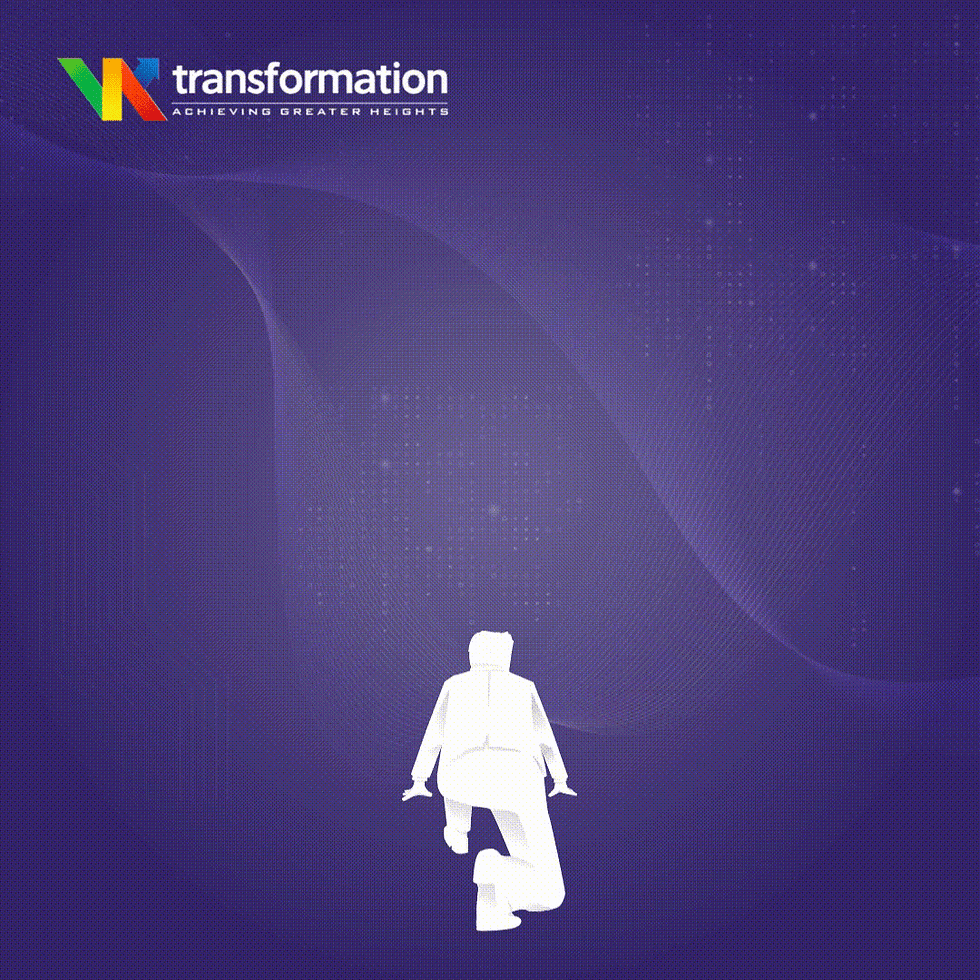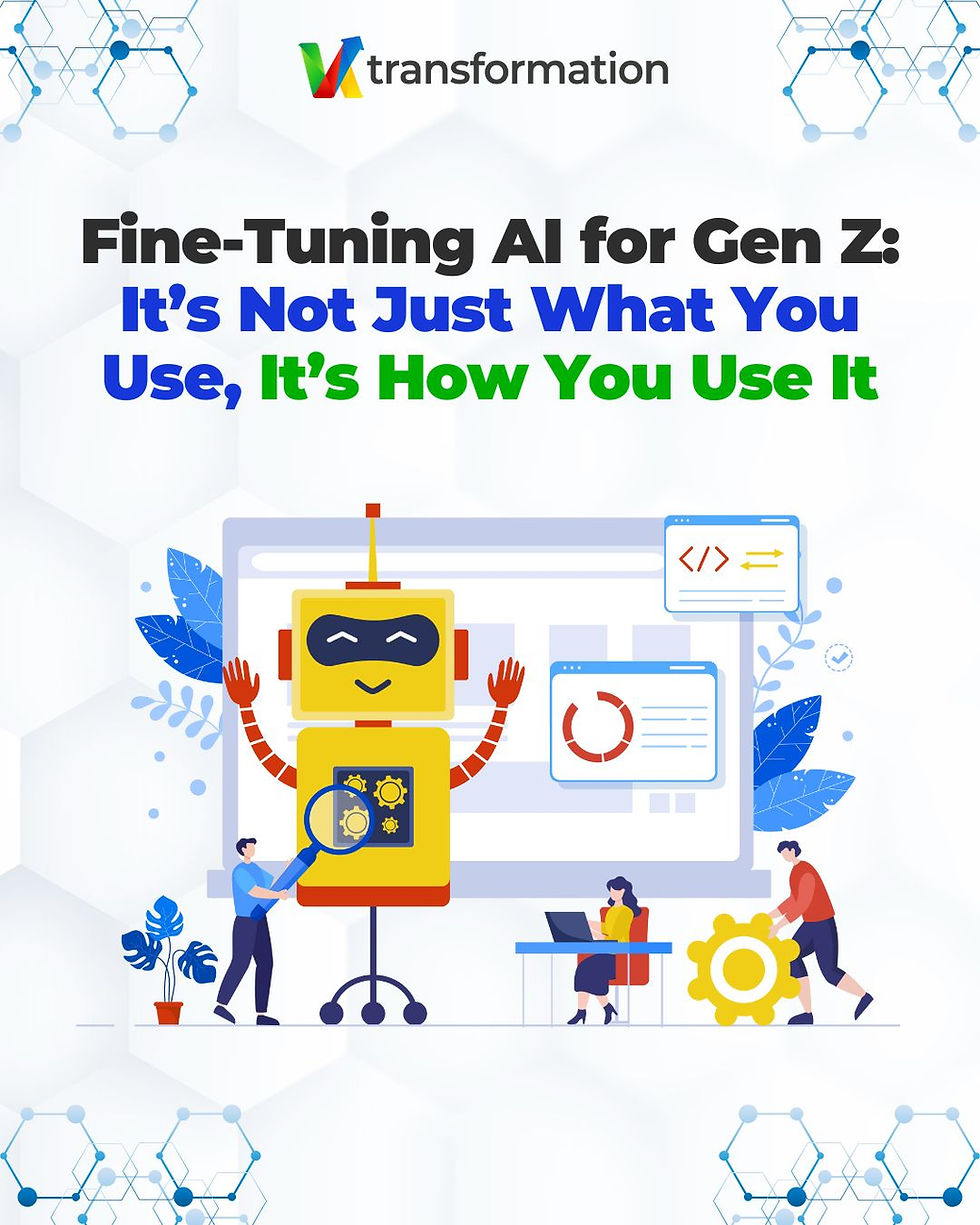Creating a Successful Cultural Transformation Journey
- Vivien Koh
- Oct 20, 2021
- 4 min read
Is your organization facing stagnant growth?
As Albert Einstein once said, “Doing the same thing over and over again and expecting different results is insanity.”
What your organization might actually need is a cultural transformation. This comes with a paradigm shift in the mindset of the organization as a whole as well as for every employee working in it.

Organizational culture can be defined as the values, expectations and practices guiding the employees in an organization. A shift in the culture of your organization requires the leaders to take charge and for every member of the organization to play an active role in successfully navigating the cultural transformation process.
🟥 Why is Cultural Transformation Important?
As the digital landscape becomes more dynamic and complex than ever before, it is important to cultivate a culture of agility and continuous learning in the organization. This can boost employee engagement, help them to better align with the vision of the company as well as create a positive work environment. The benefits of this can be seen as it is found that companies featured as ‘Best Places to Work At’ see higher average annual returns.
For instance, Microsoft’s cultural shift from a competitive and fixed mindset environment to a climate of learning was a key driver for the boost in its valuation from $350 billion in 2015 to $2 trillion today, making it one of the Best Places to Work at. Similarly, Nestle’s 3 year long cultural transformation journey to an innovative, customer-centric organization paid off with doubled e-commerce growth globally, contributing to 40% of their growth.
Understanding the importance of your organizational culture and leadership is the first step in achieving sustainable success.
🟩 5 Steps for Successfully Transforming Your Organizational Culture
The process of organizational culture transformation might seem very overwhelming and complex. If we use a simple way to think about it, according to Lewin's 3 Step Model, to change organizational culture successfully we need to unfreeze, change and refreeze our company’s culture. For a slightly more detailed overview of the process, here are six steps to successfully implement a culture change in your organization.
1. Diagnosis and Direction-Setting
Conduct an internal and external audit to better understand what works and what doesn’t for your organization. This could include primary research like employee surveys and interviews to better understand their perception of the company and its values and goals. The primary research can be complemented with secondary research about the firm’s market as well as its customers in order to better understand how your organization fares and what mindset would be required to succeed in that market. Follow the diagnosis with defining the cultural goals and vision that you would like to achieve.
2. Leader and the Avengers
The leader of an organization sets its tone. The leader will have to take charge as captain of the ship as the company treads new waters. This means that it is essential for the leader to start embracing the new mindsets so that the team can imbibe this. This process can be aided by creating a team of members with different skills and superpowers that can be trusted to guide and lead this project in the strategizing, implementation and reflection stages. The change management team of Avengers would then be responsible for showing the commitment to this changed mindset in the organization.
3. Communication as a Key Weapon
Once a new cultural vision has been set in place after using an employee and customer-centric approach, this vision needs to be dispersed among the rest of the organization effectively. The leader and team would need to lead by example but apart from that, additional efforts need to be made to aid this process of learning. This includes conducting trainings and workshops that have a lot of two-way communication to also understand the concerns and challenges for the employees of the organization for adopting this new way of working. Leaders need to ensure enough support is rendered to the employees in this process of transition.
4. Acknowledging Small Wins
With the long term cultural transformation vision in mind, smaller performance markers should be set in place so that small victories can be celebrated along the way. This will help boost employee morale and engagement while ensuring that the organization is on the right track to its new and improved organizational climate. This should be coupled by recognizing and rewarding the employees that are involved in the process as well as supporting the members of the team that are facing barriers in their journey. The process of achieving quick wins will help to build the momentum that will keep your organization going for the bigger picture.
5. Reflection & Reinforcement
At VKT, we tap into Objective Key Results (OKRs) to help us in our journey of cultural transformation. A different way of thinking is required to implement OKRs. Instead of focusing on key metrics, the focus of OKRs shifts to broader outcomes, problem-solving and pushing the company forward. The OKR discussions between our founder and her team members are circled around reflection and reinforcement of strategic thinking. Cultural transformation is a continuous process that requires patience and regular introspection. As your organization transforms, the positive aspects of this transformation can be reinforced in the hiring processes as well where you try to find individuals that will be able to have a stronger organizational fit in line with your new brand image and promise.
🟦 How Can You Begin Your Transformational Journey?
Still uncertain about how to venture on this transformational journey? We got your back.
As a Google Certified Partner, VK Transformation is passionate in helping B2B and B2C businesses accelerate their business model, brand and marketing transformation with our experience and proven track record EDG programmes, grants available up to 80% for SMEs & 60% for non-SMEs. Our founder, Vivien Koh, Xoogler and Sales & Marketing veteran of 20 years in the tech industry, has been helping organizations to shift their mindsets towards 10X growth with an assortment of transformational training programmes. Our strategic consulting wing can aid you in the diagnosis, strategy as well as implementation stages as you and your organization undergo this cultural transformation process.
Join us for a virtual coffee chat to learn more about how you can leverage our expertise to begin your journey:
Additional Sources:



Comments